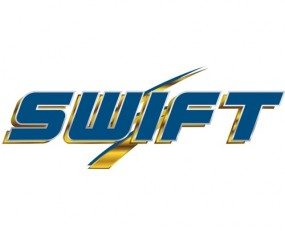
Phoenix-based Swift Transportation, one of the largest truckload companies in the US with a market cap of $2bn, has reached a crossroads.
It has not been an enjoyable ride for shareholders since its equity valuation hit a record high of about $29 in late 2014, having recorded a paper loss of 47% during the period.
Swift doesn’t pay dividends, so solid income streams have not mitigated those losses, but when it announced first-quarter results earlier this year it said the group was “positioning itself to weather the current market environment”, which remains tough.
Swift noted in April that the three months ended 31 March had begun with a soft freight environment, which caused total loaded miles for its combined trucking operations “to be down roughly 4% on a year over year basis through January”.
Although freight volumes improved in February, “March proved to be challenging” as volumes weakened further, causing “our first quarter 2016 combined trucking operations total loaded miles to decrease 1.5%” year-on-year.
As a result, it decided to downsize its combined trucking fleet by delaying equipment purchases while increasing tractor disposals. Given the latest developments, it is unlikely that second-quarter results would signal materially different trends.
A conservative investment policy came at a time when pricing was under pressure due to weak demand and excess capacity, particularly in intermodal, and rivals reduced rates to win market share.
It lost some clients in the refrigerated supply chain business, but management decided to embrace pricing discipline. Given its debt pile, the spotlight remains on cash flows – and it now appears that Swift is delivering.
It generated quarterly operating cash flow of $131.7m against $128.2m one year earlier.
Meanwhile, cash used in investing activities was $2.6m, “of which capital expenditures were $34.5m, primarily offset by proceeds from the sale of property and equipment of $34.3m”.
Cash used in financing activities was $94m, including $50.5m in repayment of long-term debt and capital leases, and $45m for stock buybacks – by comparison, it used $107.9m of cash in financing activities one year earlier.
In the first quarter, net debt fell to $1.19bn from $1.28bn, helped by a rising gross cash position, which stood at $142m at the end of the period.
Truckload and refrigerated revenues fell, while intermodal sales were also under pressure, and only the “dedicated” unit bucked the trend.
The second-quarter results are due to be released on 26 July.
Source: Transport Intelligence, June 29, 2016
Author: Alessandro Pasetti